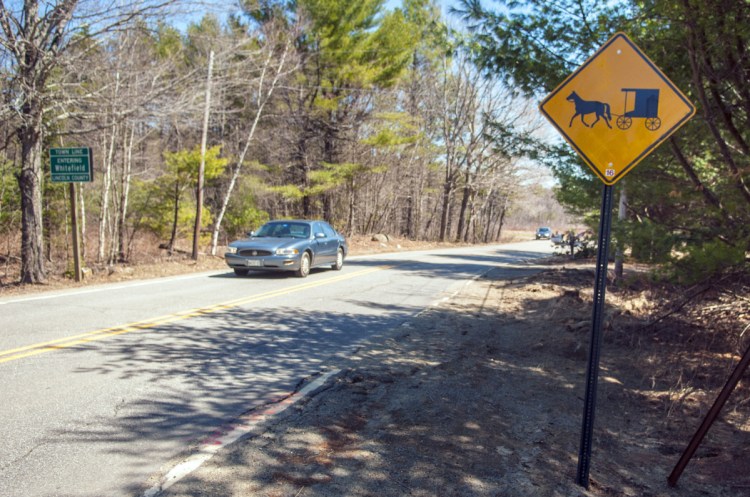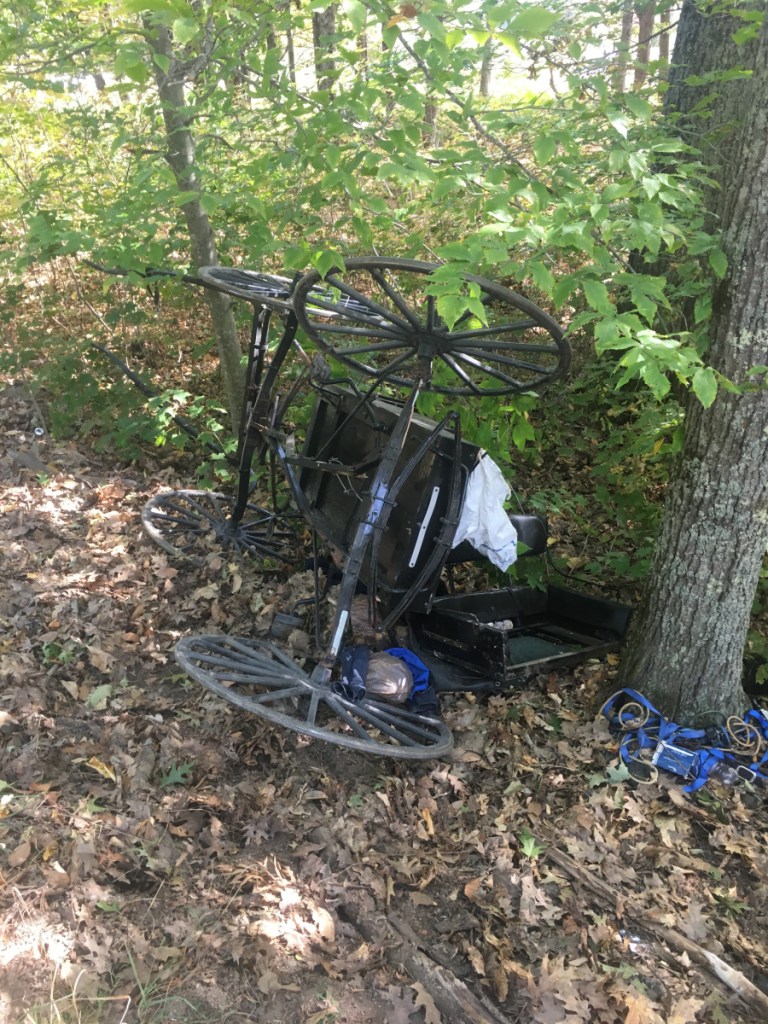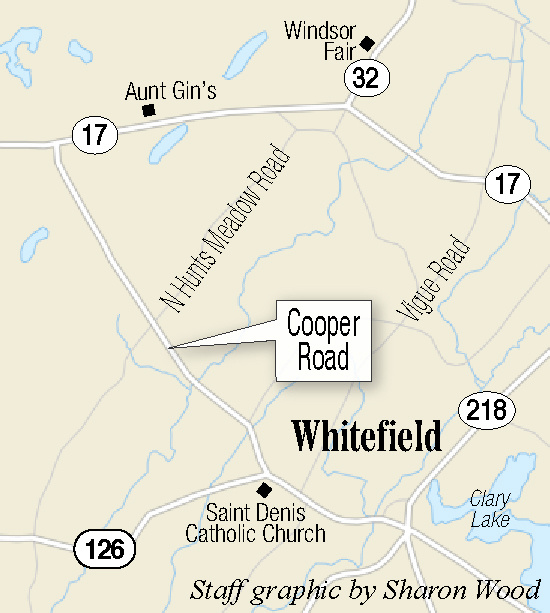WHITEFIELD — Cooper Road resident Amy Stoddard told Whitefield selectmen Tuesday night she witnessed “somebody almost get killed” because of poor visibility on the road.
Stoddard, who came to the Select Board meeting because the agenda noted “Cooper Road Traffic” as a long-term follow-up item, said the crest of the hill near Miller’s Garage makes it difficult to see oncoming traffic.
“On any given day, there’s people stopped in the road,” she said. “I can’t see what’s over that hill.”
Stoddard said the problem became worse when Amish families moved to town in spring 2017 and their slow-moving horse-drawn buggies became common on the road.
“Here comes one of the horse and buggies and … they’re going up the hill,” she said. “So, a car behind them can’t wait, so right on that hill, on the crest of that hill, a car passes.
“It just gives me chills,” Stoddard added, “because two minutes later … here comes a car going the other way.”
Selectman Frank Ober acknowledged there are problems with the road but noted they predate the Amish community’s arrival. He said Cooper Road “probably” had the highest accident rate per mile in town. Maine Department of Transportation data shows 580 crashes reported in Whitefield from 2003 to 2018, with 73 occurring on Cooper Road. Nineteen of those accidents have caused injuries and one was fatal.
Two horse-drawn buggy accidents occurred last fall, which prompted conversations among Maine DOT, town officials and members of the Amish community.
Mose Yoder, the patriarch of a large Amish family, told the Kennebec Journal in November 2017 that he did not believe the accidents involving horse-drawn buggies warranted the amount of attention they received.
“We’ve had a few minor accidents that drew a lot of attention,” he said. “When I pick up a newspaper, there are accidents every day.”
Ober said he’s spoken to Maine DOT officials about the problem and rebuilding the road — which connects Route 17 and Route 126 — without the dangerous hill would be difficult.
“We approached (the state) with the idea, ‘Could this be modified?'” Ober said. “Their monies are restricted and have been for years, so their money is going to into numbered routes.”
Cooper Road is a state-aid road, which means the town pays for mowing and plowing, and the state can make capital improvements.
Ted Talbot, spokesperson for Maine DOT, said the department “own(s) and maintain(s) it in the summer months,” while Whitefield maintains it in the winter.
“That doesn’t mean we wouldn’t assist with an issue if asked in the winter,” he said.
Talbot said Cooper Road is a “Priority 4 corridor” which is only one tier higher than local roads on Maine DOT’s five-tier system of road priority. According to the department’s website, Priority 4 roads “generally are the remainder of the major collector highways, minor collector highways, and often also part of Maine’s unique state aid system, in which road responsibilities are shared between the state and municipalities.”
“It probably won’t be fully rebuilt but will continue to have (light capital paving), which typically lasts 7 to 10 yrs before needing to be re-paved,” he said in a Wednesday email.
Ober said the Amish who have spoken to him do not support leveling out the hilly portion of Cooper Road because drivers still will be impatient when passing them on a straightaway.
“Their feeling is, if you straighten it out, level it out, (motor vehicles) would go even faster,” he said. “They couldn’t wait. They just had to go by (the horse-drawn buggies.)”
Stoddard also said there was lack of law enforcement presence on the road, to which selectmen said they would ask the Lincoln County Sheriff’s Department to step up patrols in the area.
Further, a radar speed limit sign could be installed if one was available from the state. Selectman Bill McKeen said that type of sign would be only a temporary fix.
Whitefield officials installed horse-and-buggy signs around town after the Amish arrived in spring 2017. Talbot said transportation officials published an educational pamphlet about how horse-drawn buggies and motor vehicles can coexist on the road. Those pamphlets can be picked up at the Whitefield Town Office.
Sam Shepherd — 621-5666
Twitter: @SamShepME
Send questions/comments to the editors.






